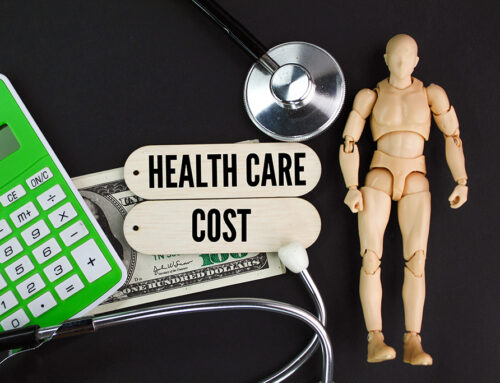 There’s much to be said for taking care of your health, and you should make caring for your wealth part of your focus, too, as it directly correlates. In fact, the American Journal of Public Health confirms that Americans at lower income levels are less healthy than those in higher income brackets.1
There’s much to be said for taking care of your health, and you should make caring for your wealth part of your focus, too, as it directly correlates. In fact, the American Journal of Public Health confirms that Americans at lower income levels are less healthy than those in higher income brackets.1
It may not be surprising that the very poor are in worse health than the very rich, but what’s surprising is that the study shows that each economic class is healthier than the one below them. And children aren’t immune, showing higher rates of chronic diseases like asthma, hearing loss, digestive disorders, and obesity than those in higher income brackets.
To some extent, income and wealth directly support better health because wealthier people can afford the resources that protect and improve health. In contrast to many low-income families, they tend to have more stable and flexible jobs; providing good benefits, like paid leave, health insurance, and worksite wellness programs; and have fewer occupational hazards. Wealthier people have more disposable income and can more easily afford medical care and a healthy lifestyle—benefits extending to their children.
Health and income affect each other in both directions: not only does higher income facilitate better health, but poor health and disabilities can make it harder for someone to succeed in school or to secure and retain a high-paying job. Coming out of a pandemic where COVID-19 didn’t target certain wealth classes, we can understand why they struggle to regain health and wealth is hard at any income level.
The solution isn’t easy or a quick fix as it requires attention in many sectors, including health care, education, community development, business, and the overall economy. However, the idea that health and wealth are connected lends more credence to strategic planning for your financial stability right alongside improving your health.
While our office may not provide you a gym for improving your health, we do have a team of experts ready to assist with strengthening your wealth. Give us a call today at (540) 720-5656, and let’s review your financial stability and the outcomes you expect from your current retirement plan.
Adapted from Urban Institute2























 Megan Jones joined the ILG Financial team in 2020 as marketing director. Megan and her husband live in Fredericksburg, VA with their German Short Haired Pointer, Gus. Megan is a graduate of Longwood University and holds a degree in communications. Megan is the oldest of Dave Lopez’s three children and not only enjoys working alongside her father, but also with her cousin, Chase, who joined the ILG Financial team in 2020 as an advisor. Megan is also a fully licensed Life, Health, and Annuity agent. When not at work, Megan enjoys sitting on the back porch with family and friends enjoying food and music.
Megan Jones joined the ILG Financial team in 2020 as marketing director. Megan and her husband live in Fredericksburg, VA with their German Short Haired Pointer, Gus. Megan is a graduate of Longwood University and holds a degree in communications. Megan is the oldest of Dave Lopez’s three children and not only enjoys working alongside her father, but also with her cousin, Chase, who joined the ILG Financial team in 2020 as an advisor. Megan is also a fully licensed Life, Health, and Annuity agent. When not at work, Megan enjoys sitting on the back porch with family and friends enjoying food and music. Chase Lopez joined the ILG Financial team in 2020 as an advisor. Chase is a 2016 James Madison University graduate with a degree in management. Chase has been trained under the tutelage of Dave Lopez, who is not only the founder and managing member of ILG Financial, but also is Chase’s uncle and godfather. He also enjoys working alongside his cousin, Megan, who is Dave’s daughter.
Chase Lopez joined the ILG Financial team in 2020 as an advisor. Chase is a 2016 James Madison University graduate with a degree in management. Chase has been trained under the tutelage of Dave Lopez, who is not only the founder and managing member of ILG Financial, but also is Chase’s uncle and godfather. He also enjoys working alongside his cousin, Megan, who is Dave’s daughter. Amy Anderson joined the ILG Financial team in 2023 as the client relations coordinator. Her responsibilities include scheduling of appointments, annual check-up notifications, and annuity and required minimum distribution assistance. She is a graduate of Harding University with a degree in Computer Information Systems. Amy and her husband have two children and she enjoys reading, crocheting, music and spending time with her family.
Amy Anderson joined the ILG Financial team in 2023 as the client relations coordinator. Her responsibilities include scheduling of appointments, annual check-up notifications, and annuity and required minimum distribution assistance. She is a graduate of Harding University with a degree in Computer Information Systems. Amy and her husband have two children and she enjoys reading, crocheting, music and spending time with her family. Jessica Carson joined the ILG Financial team in 2018 as an agent. Jessica and her husband have four children, two dogs, 3 barn cats, 5 chickens, and three parakeets. She indeed loves her children and pets! When not at work, Jessica enjoys playing the piano and cello as well as traveling and spending time outside with her family, hiking, fishing, and boating.
Jessica Carson joined the ILG Financial team in 2018 as an agent. Jessica and her husband have four children, two dogs, 3 barn cats, 5 chickens, and three parakeets. She indeed loves her children and pets! When not at work, Jessica enjoys playing the piano and cello as well as traveling and spending time outside with her family, hiking, fishing, and boating. Terri Center joined the ILG Financial team in 2019 as client services manager. She handles client records, application processing, and gathering information to provide a professional and friendly experience with all of our clients. Terri is a graduate of Oakland University. She is married and has two children. She enjoys hiking, family time, and puzzle challenging video games. She also likes to share her creativity in her canvas paintings and sewing projects.
Terri Center joined the ILG Financial team in 2019 as client services manager. She handles client records, application processing, and gathering information to provide a professional and friendly experience with all of our clients. Terri is a graduate of Oakland University. She is married and has two children. She enjoys hiking, family time, and puzzle challenging video games. She also likes to share her creativity in her canvas paintings and sewing projects.